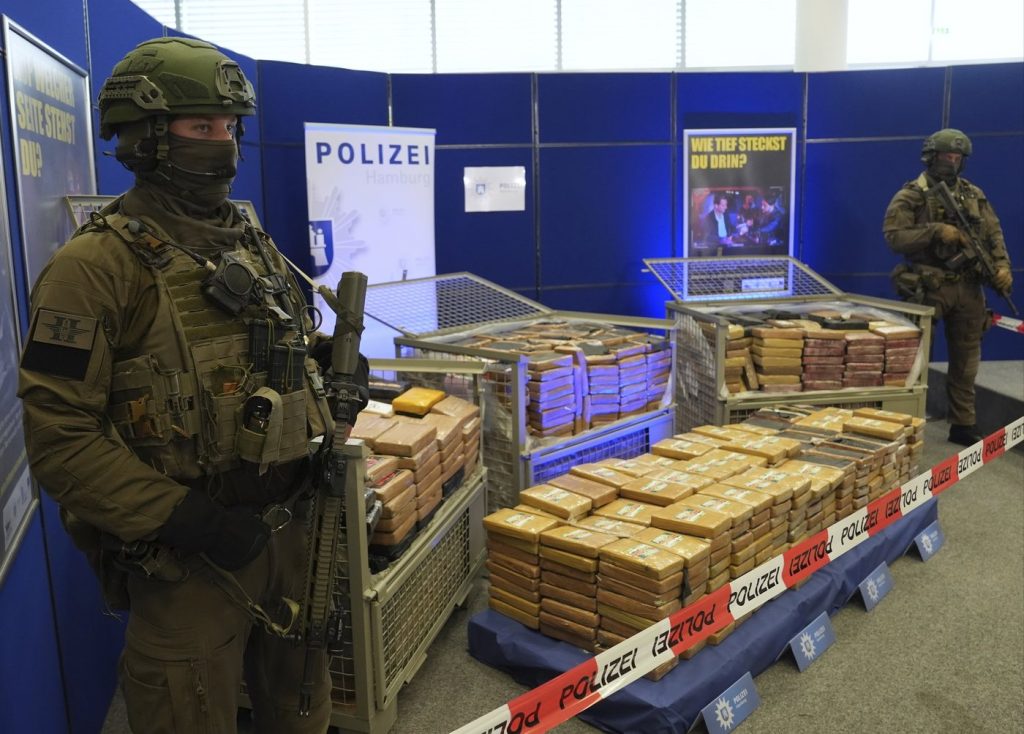Europe’s top official monitoring illegal drugs, Alexis Goosdeel, has issued a grave warning as he approaches the end of his tenure. He highlights the continuous rise in the trafficking of cocaine and other stimulants, which is leading to unprecedented levels of violence even in some of the safest societies globally. Goosdeel has been at the helm of the European Union Drugs Agency since January 2016 and has observed alarming trends unfold across the continent, particularly as they impact his home country of Belgium.
In recent years, the bulk of drug seizures have shifted from the southern ports of Europe to its northern ones, with Antwerp emerging as a significant entry point for cocaine and crack. This surge in drug trafficking has coincided with a disturbing increase in gang violence, resulting in shootouts occurring alarmingly close to the seat of the European Union’s government in Brussels. “For people living in Brussels, that’s the first time in the history of the country… that you have episodes with weapons, with guns, in the center of Brussels,” Goosdeel stated, noting that these violent incidents now take place just 2,000 meters (1.2 miles) from the European Parliament building.
Goosdeel attributed this rise in violence to the globalization of drug gangs, including groups from the Western Balkans operating in South America. He also pointed out the troubling trend of gangs utilizing social media platforms to recruit at-risk youths, including undocumented migrants. “We don’t understand yet what are the root causes of this change of behavior among young teenagers or adolescents who embarked on ultra-violent behavior without having really a past of delinquency,” he explained. This new generation of criminals not only engages in violence but also shares their actions online, complicating the understanding of this cultural shift.
The European Union Drugs Agency’s annual report, released recently, documented a staggering statistic: cocaine seizures in Europe reached record levels for the seventh consecutive year, totaling 419 tonnes (462 tons). Belgium led the statistics with 123 tonnes confiscated, followed closely by Spain with 118 tonnes and the Netherlands with 59 tonnes. Together, these three countries accounted for 72% of the total seizures in the continent. The report also highlighted Spain’s largest-ever seizure of 13 tonnes of cocaine hidden in bananas shipped from Ecuador, exemplifying the cartels' use of established shipping routes.
In addition to the alarming rise in drug-related violence, Goosdeel raised concerns about an emerging public health crisis. Unlike opioid addiction, which can be treated with existing pharmacological methods, the increase in stimulant use poses a significant challenge. He warned that without proper intervention, Europe might face a greater need for treatment options in the next four to five years, as there are currently no effective medical solutions for stimulant addiction. “It’s time to invest,” he stressed, acknowledging the urgent need for resources to address this issue.
Europe continues to be the leading producer and exporter of ecstasy, with the agency’s early warning system identifying over 1,000 new synthetic substances in its 27 years of operations. Goosdeel expressed surprise at the proliferation of new drugs in the last decade, stating that the landscape of drug use has transformed dramatically. “Drugs are everywhere, including those we produce in Europe. Everything can be used as a drug,” he emphasized.
Despite the escalation in drug-related violence, Goosdeel advocates for a balanced approach to drug policy. He insists that while tackling drug-related violence is critical, policymakers must also prioritize the health and rehabilitation of users rather than resorting to punitive measures. Europe’s approach has been largely shaped by a public health response aimed at aiding drug users in overcoming their addictions, moving away from the failed “war on drugs” strategies observed in other regions, particularly the United States. “We have learned in Europe, and from what happens outside Europe, that to declare war on the people who are using drugs is not the solution,” he concluded.











